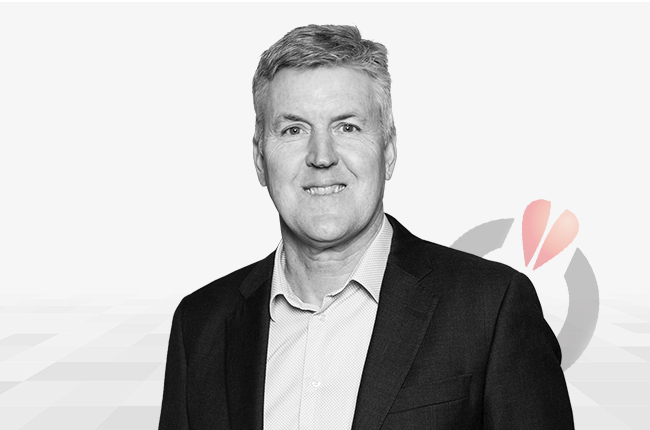In a recent virtual event hosted by Huawei as part of a series of webinars focusing on the Future of Finance both in South Africa and globally, the accomplished Group CEO of EOH Stephen Van Coller was interviewed by industry leader and founder at Innovation Catalysts Colin Iles about the quickly evolving landscape of mobile finance and how this transformation will affect the financial industry and the global community.
When being asked to define mobile money, Stephen provided the pragmatic answer of it being “a system seeking to be better than cash” and stated that should this be achieved, mobile money will provide the much sought-after frictionless money system that we all desperately need. He went on to describe the challenges of the current cash-money system, namely that cash is insecure (at high risk for theft), that it’s an expensive mechanism (cost of cash being 23 billion rand per year/0.5% of GDP running) and lastly that the banking sector excludes a great deal of the population.
 Group CEO of EOH Stephen Van Coller
Group CEO of EOH Stephen Van Coller
Stephen explained that the statistics initially showed that 90% of the South African population had bank accounts but when Finmark investigated, it was found that 40% of that consisted of dormant accounts or mailboxes and that an astonishing 90% of informal enterprises solely use cash. Stephen also cited the delay in receiving money as a major source of friction in the current payment system, where sending money from one bank to another means that those without the credit rating to have the luxury of a credit card are limited in their purchases until their hard-earned money reflects in their bank account.
When asked by Colin what he believed the world with fully mobile finance world would look like, Stephen brought up cryptocurrency. He went on to say that the ultimate future in finance lay in using a digital token to simulate the function of a currency with instant settlement, and could be used at any vendor immediately after receiving it. This would increase the speed and velocity of money and would ultimately evolve into other services such as insurance and lending. He emphasised that making financial services such as short-term loans more accessible to the broader population would be a game-changer.
Commenting on the widespread adoption of mobile finance in countries such as China, Colin noted that South Africa has been slow to adopt to this new money system and wanted Stephen’s take on what barriers might be preventing widespread adoption in South Africa.
Stephen stated that one of the biggest barriers was that each time mobile finance had been launched in South Africa, the service was too expensive. This was due to subscribers requiring a physical card in addition to other financial services (such as the checking of bank balances) also carrying exorbitantly high costs, thereby alienating a large percentage of the population. Stephen emphasised that the point of mobile money is always to bring more people into the money ecosystem. Additionally, regulation in South Africa is not currently friendly toward mobile money and traditional banks have the ability to prevent the start-up of a mobile money business because the latter requires a bank with a licence to be a sponsor.
The two industry leaders spoke at length about the speed of change within South African regulation and it was established that in order for mobile money to be successfully established within the country they would have to implement instant settlements, free transactions and promote widespread adoption by getting merchants involved. Stephen added that mobile money can allow for a change in tax regulation, as it would permit tax to be paid at the source directly to the fiscus and reduce the time burden on the vendor from having to do a tax return in addition to providing real time data on business finances. This also changes the risk of loans and allows for risk share between lender and borrower, in addition to allowing the lender to flexibly adapt the loan terms, while helping to expand the borrower’s business.
The Senior Transformation Expert of Financial Industry Huawei Technologies, Ron Raffensperger, joined the talk and spoke on his experiences in China as well as the success of the mobile-money platform MPESA developed by Huawei.
Ron mentioned a study done in Kenya on MPESA’s effect on the community that showed that MPESA’s services lifted around 200 000 people out of poverty. MPESA was originally created to make it easier to send money between individuals and started as a service that offered phone-to-phone transfers, which was often done from those working in the city to their families in the country.
MPESA built their network around this service and then added agents to within a kilometre of most subscribers (the average distance of a bank being 14km) that allowed them to draw and withdraw money from their accounts. The phone-to-phone transfers within markets provided large benefits to the vendors and it was possible to send money to an individual without an MPESA account as they could easily sign up to receive the money. Over time MPESA was built up to provide more sophisticated financial services such as overdrafts and microloans, which showcased the evolution of the offering from traditional financial services to that of a platform.
MPESA’s success can be partially ascribed to their use of innovative technologies. This includes cloud technologies to offer microservices, HTML5 which allows developers to create smart programmes that can run inside Android or IOS applications, and AI to get automated advice to make smarter decisions about credit and other facilities.
The webinar was well received by the attendees, with many submitting thought-provoking questions to the speakers, and there was much excitement around the draw where three lucky attendees won a Huawei A2 Fitband.
With so many invaluable insights into the future of finance, it was clear that big role-players within the financial industry would walk away from this webinar with a considerable advantage.